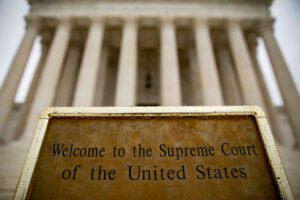Columbia Activist Faces Deportation Amid Claims of Antisemitic Protests

In a decision with significant implications for free speech on university campuses, a U.S. immigration judge has ruled that Columbia University activist Mahmoud Khalil can be deported. The ruling cites concerns over potential foreign policy ramifications linked to Khalil’s activities, marking another chapter in the ongoing debate over the limits of protest and expression.
Judge Jamee E. Comans, presiding in Jena, Louisiana, concluded that the U.S. government had presented “clear and convincing” evidence that Khalil’s removal was warranted, given the potential impact on the nation’s foreign policy. The 30-year-old Khalil, who recently earned a master’s degree from Columbia, remains detained following his arrest on March 8.
His arrest took place in the lobby of his university-owned apartment, leading to his transfer to a distant immigration facility, far from his legal counsel and pregnant wife, who is a U.S. citizen. Khalil, a Palestinian who grew up in a refugee camp, has historical ties to the region, with his family displaced from Tiberias during past conflicts, as noted by his lawyers.
The government, under pressure to justify its actions, presented a memorandum from Secretary of State Marco Rubio. The document cited the Immigration and Nationality Act of 1952, arguing that Khalil’s presence in the U.S. posed a threat by potentially creating a “hostile environment for Jewish students” and counteracting U.S. foreign policy goals.
Judge Comans underscored that the standard of evidence against Khalil had been met, a point highlighted in The Associated Press coverage. However, Khalil’s defense argues that the evidence, primarily a letter from Rubio, does not substantiate criminal activity but targets Khalil for his speech, as the American Civil Liberties Union asserts.
The Trump administration’s decision is linked to Khalil’s involvement in protests deemed antisemitic, supporting Hamas, recognized as a terrorist organization responsible for an October 2023 attack on Israel. At the hearing, Khalil’s attorney, Marc Van Der Hout, criticized the proceedings as a façade for silencing dissenting voices.
“Today, we saw our worst fears play out: Mahmoud was subject to a charade of due process, a flagrant violation of his right to a fair hearing, and a weaponization of immigration law to suppress dissent,” Van Der Hout stated. “This is not over, and our fight continues.”
With plans to appeal the decision, Khalil’s situation remains in legal limbo, as courts in New York and New Jersey have temporarily blocked his deportation pending further legal challenges.
Amidst this legal battle, the U.S. Department of Homeland Security has accused Khalil of aligning with Hamas activities, a claim the administration backs by threatening to withdraw substantial federal funding from Columbia University over its handling of antisemitism issues. Khalil’s previous statements to the media emphasized the continuation of protests, regardless of arrests, as activists seek to pressure institutions like Columbia to divest from Israel.
As this case unfolds, the ramifications extend beyond one individual, touching on broader themes of protest, expression, and the complex interplay between campus activism and national policy.
This article was originally written by www.christianpost.com






